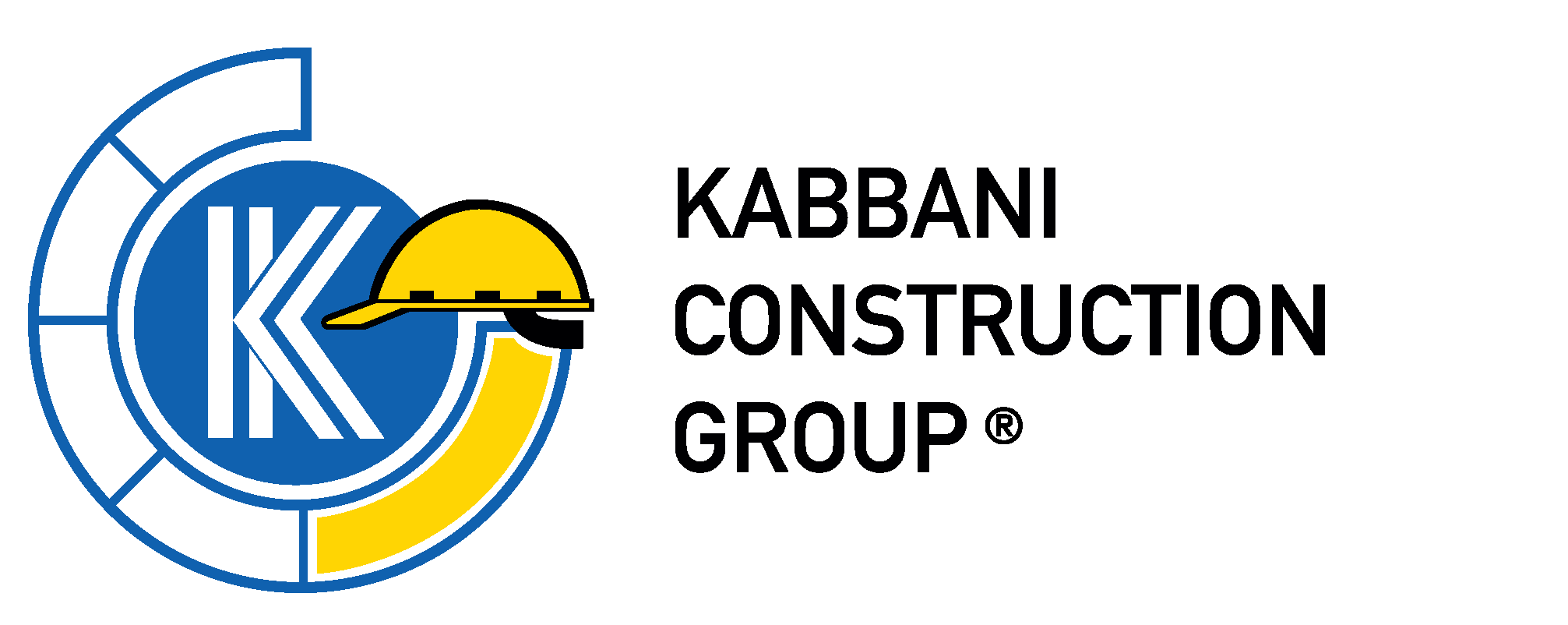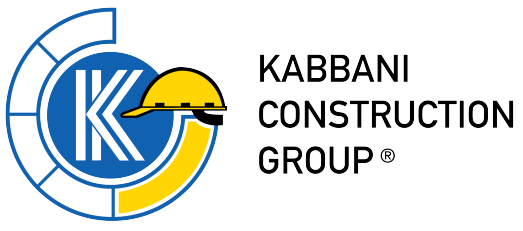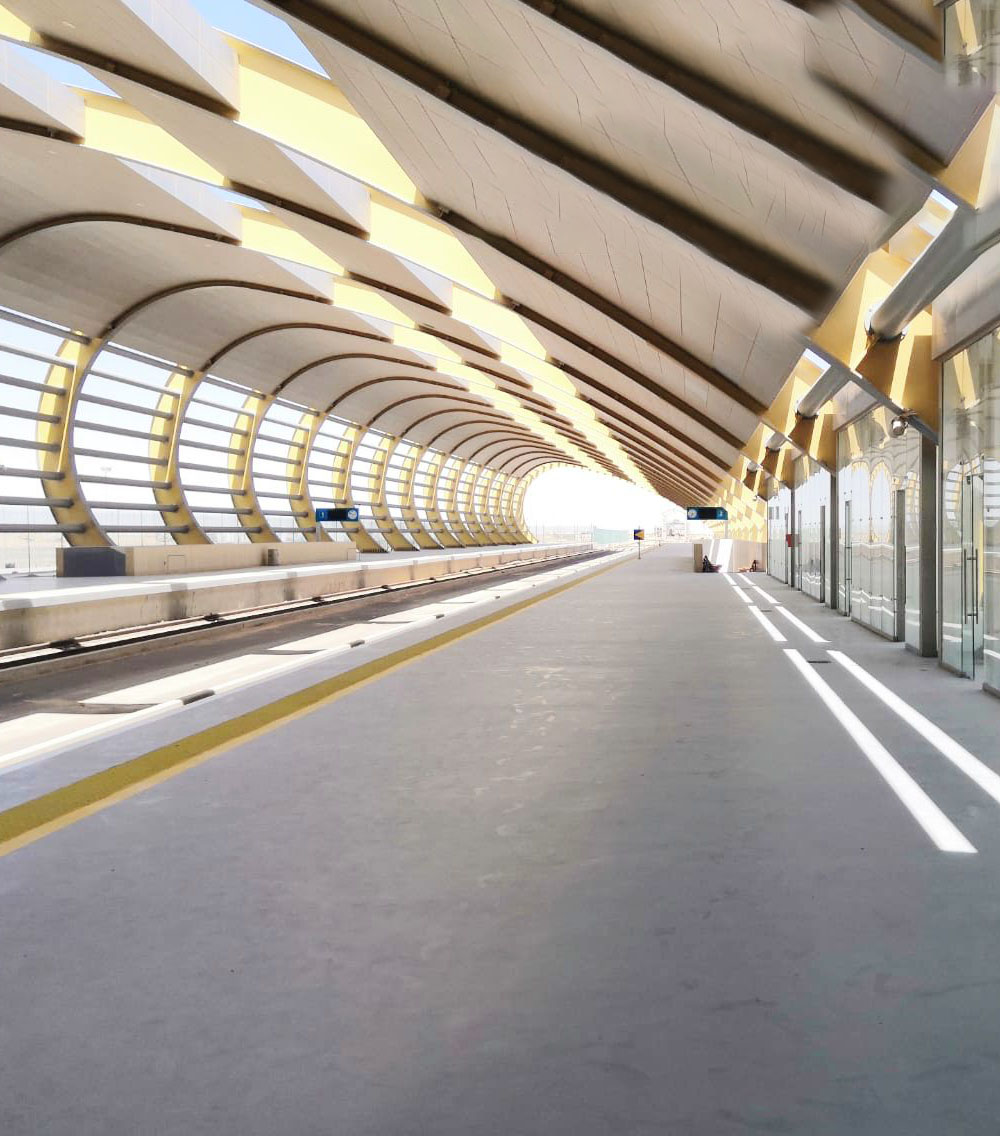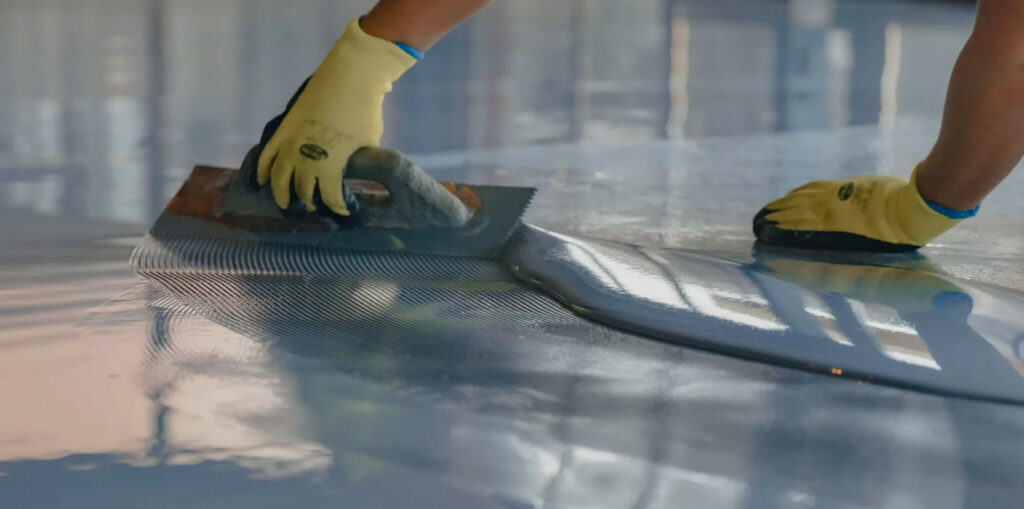Probably the best known and most widely used kind of industrial resin flooring, epoxy resin is a thermoset material that offers the performance and durability of resin flooring and is the optimum resin flooring choice for electrical conductive flooring.
There are several types of epoxy resin available, offering various advantages depending on use, but all epoxy resin flooring is very hard and bonds fully to concrete, thereby protecting the underlying concrete base from impact, wear, abrasion, water ingress, oil and a wide range of chemicals.
If an epoxy resin floor is damaged, however, it must be fully replaced, and with the longest cure time of all resin flooring options, an unplanned replacement could be very costly to a business.
